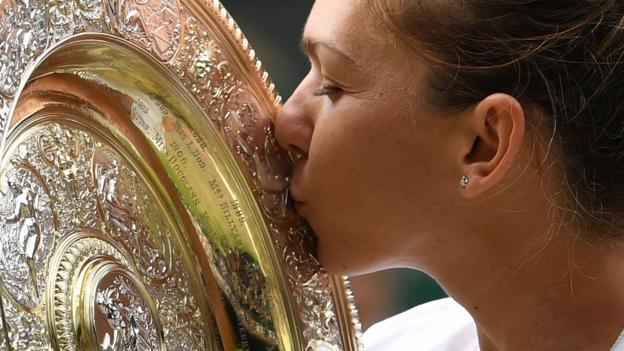
A series of emergency meetings is under way to decide whether Wimbledon can go ahead this year.
The All England Club says a final decision is yet to be made, but the cancellation of the Championships for the first time since World War Two now seems inevitable.
The Wimbledon Championships are due to run for two weeks from Monday 29 June.
The French Open has already been pushed back four months to late September because of the coronavirus pandemic.
"I guess everyone's been waiting on it," Britain's seven time Grand Slam doubles champion Jamie Murray told BBC Radio 4's Today programme.
"It's obviously the next big event in the tennis calendar that's still on the calendar for the moment."
BBC Sport understands a decision to abandon this year's grass court season is likely be made in conjunction with three governing bodies - the Lawn Tennis Association, the Association of Tennis Professionals and the Women's Tennis Association - within the next 48 hours.
The All England Club admitted last week that a postponement would not be "without significant risk and difficulty," and Murray says there are many practical reasons for that.
"I think for them, it's difficult to move the tournament back because you're running into other tournaments that are for the moment still on the schedule," he explained.
"And also just things like daylight to host the event. Each week that passes, you get less and less light to play the tournament. And obviously they play until nine and 10 o'clock each night at Wimbledon."
The All England Club is confident it will be able to refund ticket and debenture holders through the insurance policies it has in place.
But tennis will be denied its annual chance to showcase the sport in the UK, and to encourage people to take to the courts.
The preceding grass court tournaments in Nottingham, Birmingham, Eastbourne and at Queen's Club in London will also be affected.
There is likely to be no professional tennis played anywhere until at least 13 July, which leaves players like Murray in the same boat as everyone else.
"I'm just at home, taking the necessary precautions, and trying to stay as active as I can," the Scot continued.
"It's different. We're used to being on the road all the time, used to being in different cities every week, and you kind of become institutionalised to that.
"So even when I'm at events, come Friday, Saturday, when you're starting to play for big prizes, your mind's kind of like, ready to go to the next event because that's just what you've been programmed to do."















 Phone: (800) 737. 6040
Phone: (800) 737. 6040 Fax: (800) 825 5558
Fax: (800) 825 5558 Website:
Website:  Email:
Email: 






